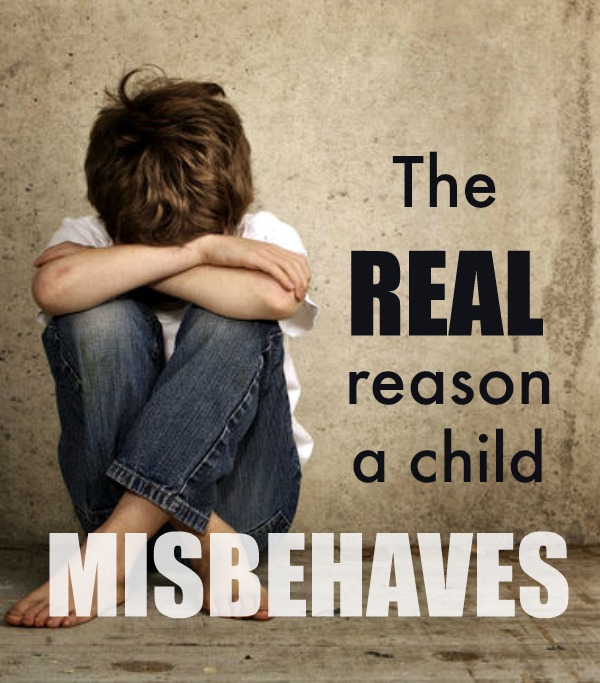There are many reasons that kids misbehave… far too many to mention here. Becky is a play therapist and has studied child development for many years. We have found that one thing holds true when our kids misbehave: they don’t feel connected.
When your child doesn’t feel connected to you, it will cause him or her to feel frustrated, angry, upset and just out of sorts. It can make your child desperate for your attention. You will see that your child isn’t focused and isn’t cooperating. He may even begin starting arguments with friends, siblings or you.

A few examples of when you may see this happen:
- After watching TV or playing electronics. Little things will turn into big power struggles.
- Your child is reading to you and you start looking at other things (your phone, etc…)
- After asking for your attention several times, but never getting it.
- When you leave the room. Did you ever notice that your kids will be playing nicely until you walk away or start a project (even cooking dinner or making a phone call.)
- When you wait too long to do what you’ve said you will do. Example: You are about to read a book to your child when you get a phone call or when the washing machine beeps. You decide to take care of that quickly and when you are done, your child is no longer cooperative.
What can you do?
- Talk to your child and then LISTEN.
- Hug your child, hold hands, sit closely, but let him know that you are physically there now, too.
- Ask how you can help. “I’m sorry that you are feeling this way. Tell me what is wrong”. Now here is the hard part. When he does tell you what is wrong, don’t defend yourself, don’t defend others… just LISTEN and try to be empathetic.
- Your child needs your help to feel better because you are the adult. Be willing to just understand, even if it is hard. So many times, we get angry out of a defensive or even out of guilt (when we know that we should have just played with him/her.)Remember, listening may sound easy, but it isn’t. To truly give someone 100% of your attention is more difficult than it seems, but it is the most important thing that you can do. If your child seems disconnected and then acts out because of it, try just listening.Instead of saying something like “I can’t stand when you act this way. Go to time out.” Instead… try saying “Tell me what’s wrong, so I can help you fix it.”And then –>> just listen.
If you would like more ideas… you are welcome to print this for free & I will share some one on one tips with you, as well, via e-mail.
Love this.